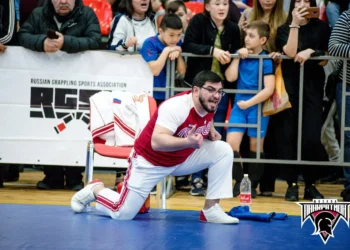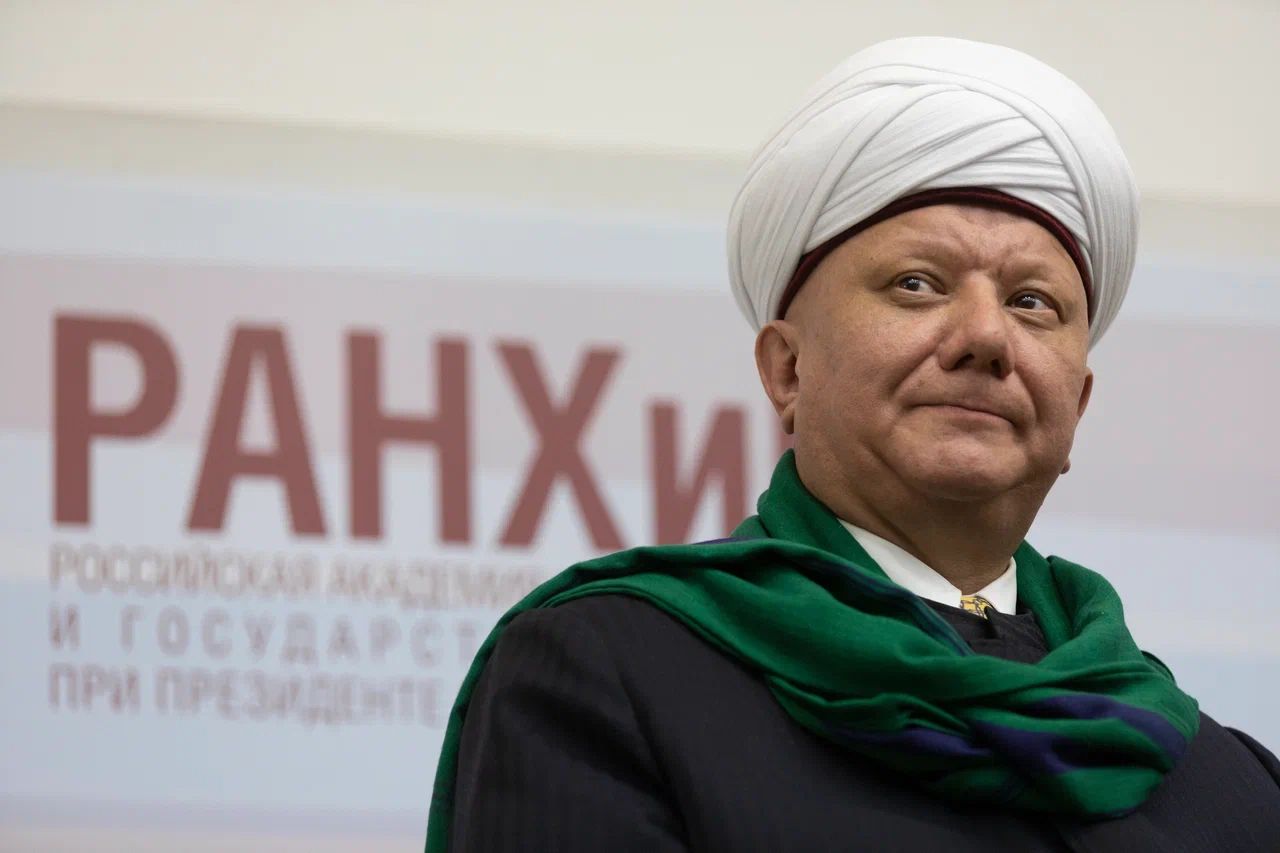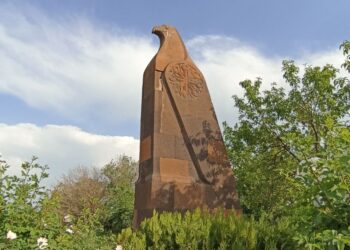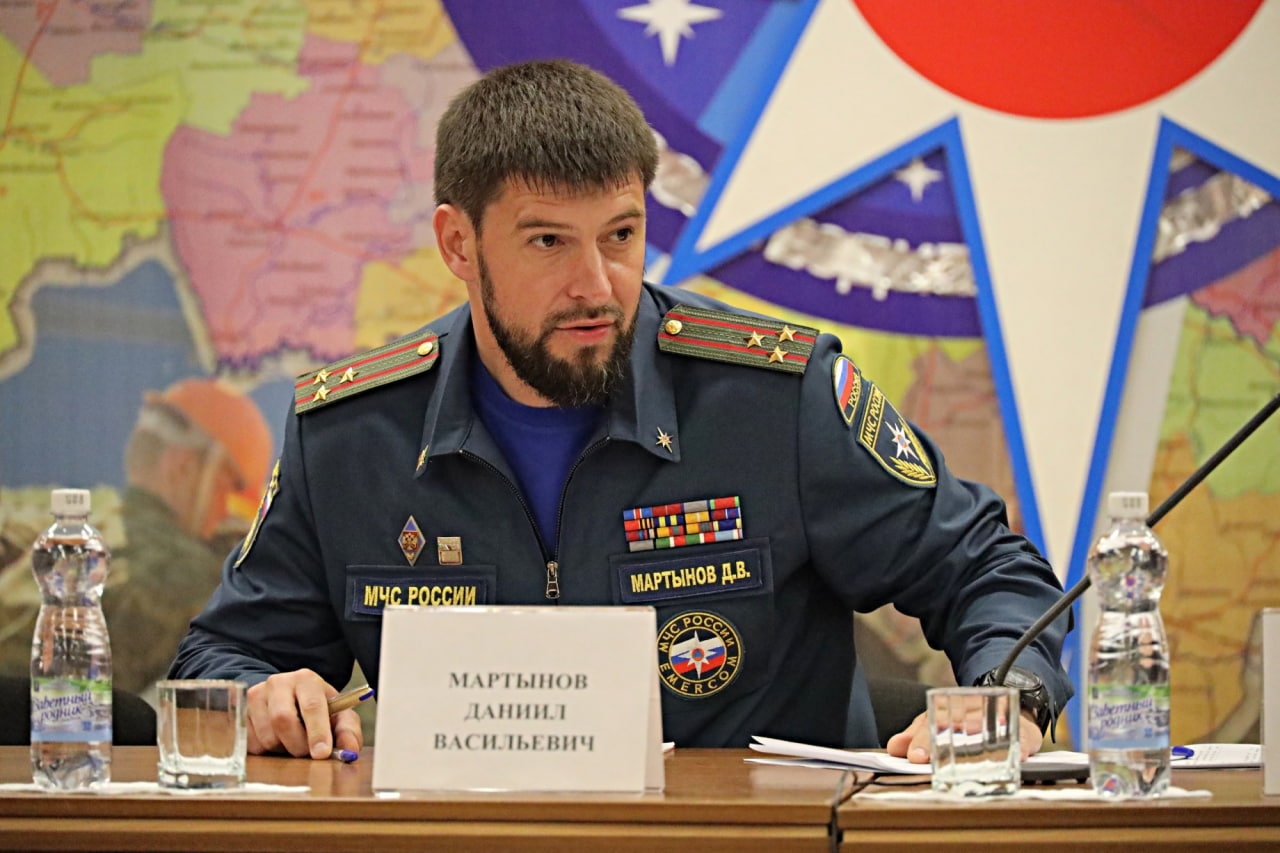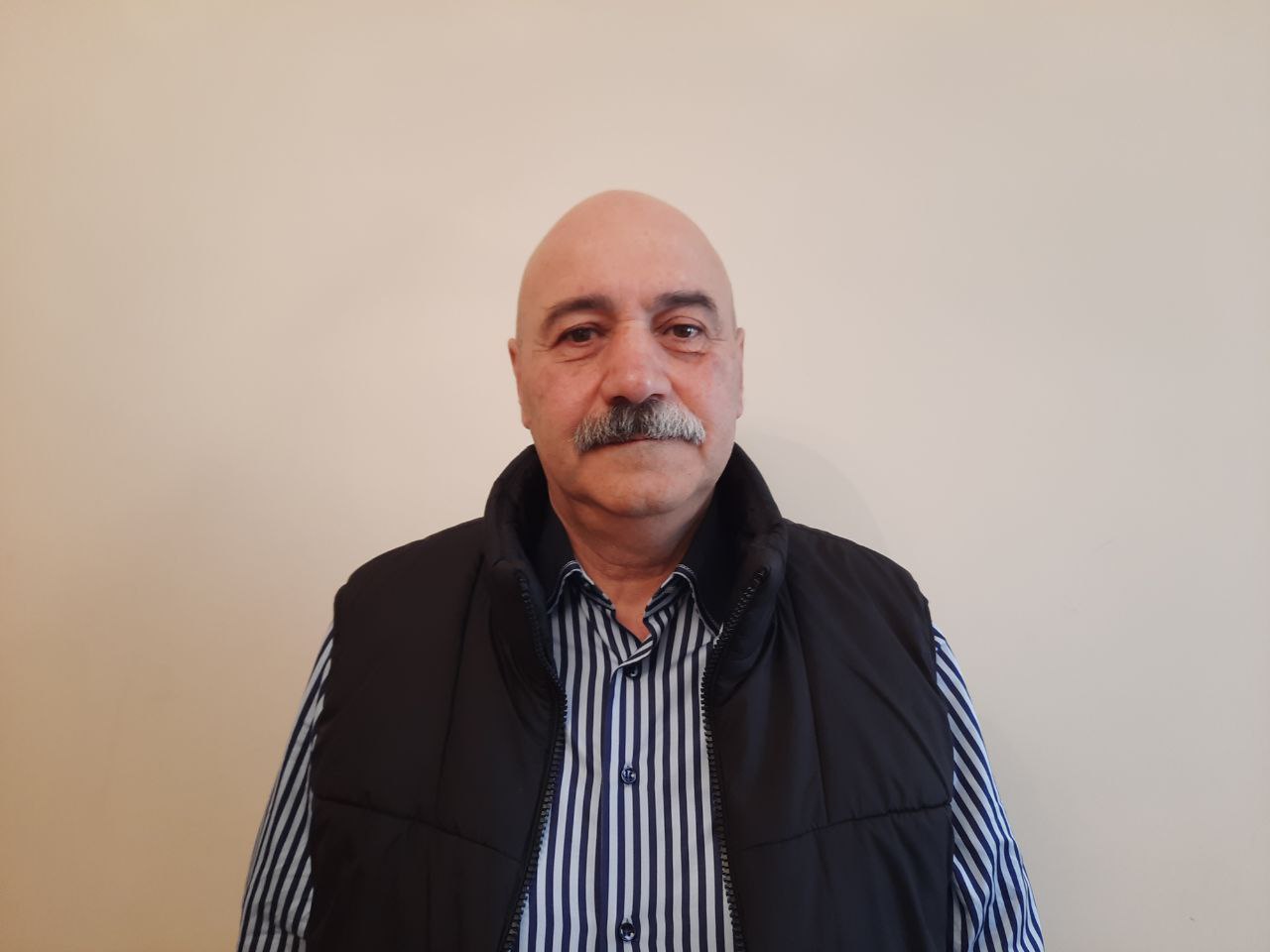YEREVAN (Realist English). These and other questions of The Realist News Agency were answered by director, actor, expert in the field of innovative creative technologies Pyotr Nemoy.
You have been living in Yerevan for three years. Why Armenia?
Pyotr Nemoy: There are two explanations for this. First: this is a country that is very close to me in culture and in the structure of relationships – deeply close and, in a human way, understandable. The second is related to my research work.
I lived in India, lived on Lake Baikal, studied the peoples, their culture, history… and then I discovered that the keys to understanding everything I was looking for is stored in Armenia. Here are the origins, the answers to all questions of the Vedic culture, of the shamanic culture, of the early Christian world, and of the civilization as such in general. So, I came to the starting point.
By the way, we live not only in Yerevan, but also in Goris. I love Syunik very much. For me, this is the most powerful territory I’ve ever known.
Do you already have your own list of pluses and minuses of living in Armenia?
Pyotr Nemoy: The biggest minusof living in Yerevan is that you have to go to any meeting in a car in complete secrecy, otherwise you will say hello to everyone you know and love, to drink at least a cup of coffee with them – that’s it, you are hopelessly late.
Another minus is just terrible! – the delicious food and hospitality. Because there are no gyms where you can remove everything you have eaten.
And besides these, there are minuses, but the serious question is whether these are minuses?
We can talk about the fact that there is no system here, that it is difficult to find the right masters, and not those who “have no problems”, and then it turns out that you have flooded a whole five-story house.
But are these minuses or a part of the environment, part of its deep protective functions? After all, you can come to a very technically comfortable space where everything will be perfect, but the space will be monstrous in its content.
Do you know that Armenia, from the point of view of archeology, is considered the most unexplored, but at the same time the most preserved country in the world? That is, we do not dig in, but we keep it. Such interesting balances allowed us to preserve corners of warmth, say, like the Yerevan Kond. But had everything been “civilized”, there would have been Northern Avenues and glass (buildings) long ago.
And the pluses… the most important one is that Yerevan is the center of the world. Every third person you meet here on the street has recently landed from a conditional Paris, and in a couple of days will fly, say, to New York… And an hour after I have rented a new apartment, they congratulate me on my housewarming from London. And it’s very cool. This is the center of the neural network, and you will be one of the first to learn all the news, gossips and rumors from around the world.
And how do you think Armenians differ from other nations?
Pyotr Nemoy: Firstly, Armenians have a huge nose, which they have been poking everywhere for thousands of years. Based on the research of the Armenian nose, the Matenadaran – the richest collection of stories of the earth – was created. Yes, yes, not only the Armenian history. They collected both Indian philosophy and the Greek one, that is, the history of the whole world. They study everything that appears – from photography to cars, from games to the space. So the main feature of Armenians is curiosity.
The second distinctive feature of Armenians is that they maintain an incredible balance of faith, humor and rationality. This is a unique combination.
And, of course, it is impossible not to say how emotional Armenians are. If you are busy and don’t call a friend for a couple of weeks, he will be offended forever. I’ve seen very few places like this. On the one hand, this is a problem, but on the other hand – a very deep state. We can interpret this through narcissism and excessive self-obsession, but we can also interpret it through another structure. I tend to think about it through the property of the system body. For Armenians, the state, the mood, and the retention of constant emotional contact are very important, and this is already a property of the neural network.
This is a very complex territory. Or maybe it’s my subjective perception of a person who is in love with this space of the world.
Yet another of the difficulties of interaction with the structure is that Armenia has all the first elements. For example, Armenian cuisine is the protocuisine of the humanity, the meat is cooked like meat, it is not something unrecognizable, but just the meat. The second wave of cuisine is even more difficult, because Armenians have been integrating into all countries, all industries, and all cultures for thousands of years, bringing recipes from everywhere. Therefore, Armenian cuisine is such a hyperfusion of all countries, and at the same time retaining its archaic point. This is a complex territory.
And something more about the differences… Any nation is described through the language, because the language is a way of thinking about the world. The Armenians have 41 active dialects! If a Gyumri man speaks quickly, then a Diljan man will not understand at all what he is talking about. What is 41 dialects? This is 41 ways of thinking about the world, 41 ways of describing it. This is an incredible wealth. This is an Armenian miracle, which consists in the fact that every microelement, every proton in the form of an Armenian man or an Armenian woman moves absolutely separately along its own trajectory, but together all this is one. It’s just paradoxical.
What is Project 301? What is its essence, its mission?
Pyotr Nemoy: We have 4 main sections, but the main mission of the “301. Land of Wisdom project” is to ensure the ontological security of Armenia. The topic is quite complex. Let me explain simply: an Armenian is someone who lives in a special system of the world view.
For example, humanity for some part of time and in some space have lived in the idea of a flat earth. At first glance, this does not affect anything. But in fact it affects everything: technology, production of objects, of the way of economy management, of the ethics, of the structure, of the religion… The way of thinking about the world distinguishes one community from the other. It is expressed through the folklore, through the language…
In the twentieth century, ontological seizures and a new colonialism began around the world. The great powers realized that the physical seizure of some territory and its retention is an expensive pleasure. It is easier to integrate your way of education, your approach to the culture and the science. And then no one should be forced to be a colony – the new generation will be yours completely and voluntarily, because you are the source of the culture in which they were brought up. That is, a culturological, ontological seizure is taking place, and in order to get out of the colony state, it is necessary to create an ontological security system.
How to do it? For example, a child becomes an Armenian by the 1st school grade and only then becomes a physicist, chemist and anyone else. Ontology does not prevent him from being relevant in today’s world. Ontology allows him to retain an understanding of who he is and what he lives about.
Because it has not only a pseudo-cultural history, like “here, we are Armenians, we have churches over there” – this is all understandable, but not relevant. Well, yes, there it was – the history, the antiquity, it is necessary to know this, but there is no relevance in this, it does not bring anything. Something else is important.
Humanity is at the same stage of development of science and technology. Physical formulas, chemical, mathematical algorithms are the same for everyone, but specialists and scientists from different cultures, for example, a Japanese, a Hindu and an Armenian, will look for a method of solving the problem in a completely different way, since the approach is different. Thus, a seemingly rationally irrelevant culture forms a way of thinking about the world, and this way can be incredibly competitive and important within the framework of the world in general.
As a foundation, we are engaged in these main areas: education, research and systematization of the history of the Armenian culture. At the same time, we are not just interested in history and its preservation (many foundations are engaged in this), we are interested in studying ancient roots and updating them in real time.
This is a very delicate and extensive job. It seems to us that Armenia is not a country of industry. This, of course, does not mean that there is no need to produce anything – there is. It is necessary to grow fruits here – they are unique, they have the best of qualities, they are grown in beautiful landscapes, but this is not an industry that can support the entire country – logistics will always be expensive in this region … If we talk about mining, then yes, there are minerals here, but I don’t know if it is a gift for Armenia or a curse? After all, the country will get little from them, rather they will enrich themselves a few people, and the whole land will be dug up. As the ancient peoples say, “gold is a gift, but it is also a curse.”
Then wherein is Armenia’s strength? What kind of future can she have? Only by forming a meaningful agenda, we shape the future. The future is in creonomics – in education, in medicine, in IT. Everything related to the economy of knowledge, of impressions, of an integrated approach to health and everything else. We wondered if Armenia could become an exclusive territory, a kind of Silicon Valley for the humanity? Maybe, Armenia can become a land of wisdom, where I come again to find the meaning that I have lost?
A place where I come to fix my teeth with the most professional dentists, and at the same time to learn to smile, because the humor is wonderful here. A place where the best cardiologists will repair my heart, and where this heart can be filled.
So, one of the main objectives of the project is that we want to bring 301 wise men to Armenia in a certain number of years. These are not experts, they are passionate, multifaceted, complex people. A wise man can be a professional in any field – in music, in IT, in quantum physics, in theater – it does not matter, but he is always above the simple philistine position of momentary benefit.
The task of these wise men is only to help Armenia reflex itself. For example, I am passing by some beautiful house, admiring it, and the person who passed by it every day for bread never raised his head and did not notice it. And around this view from the outside, some meanings begin to form, there appears a desire to do something about it.
In addition, we interact with a certain number of Armenian wise men, of whom there are many, but they are hidden.
What can and should each of us do specifically to make that “quantum leap” happen, the very gathering of competencies that you are talking about? On what principles could Armenians unite?
Pyotr Nemoy: I am absolutely sure of what I am saying. Armenians have serious competencies in a variety of sciences – chemistry, physics, mathematics… And if they combine, it will lead to an incredible quantum leap. And this will not concern Armenians or Armenia, but the world in general, because we are moving towards a multidisciplinary principle. In order to create, for example, artificial intelligence, you need to have a lot of knowledge in various fields. But people are uniting now around banks, money and other momentary tasks. But if you do the same thing, but unite around a meaning, around values, then it will give a cosmic effect, it will be a new round of development of the civilization.
How can this happen? Combining competencies around values is a difficult task, especially now when the world is fragmented and divided. But if the Armenians still manage to stand shoulder to shoulder and unite around the values described in Mkhitar Gosh, Narekatsi, Sasna Tsrer and many other texts, in the structure of early Christianity, it will be an incredible breakthrough.
What should contribute to this? In early sources there is a statement: “What is a gift is also a curse.” We know about hundreds of Armenians who have achieved amazing results in various sciences, culture and art, medicine and engineering, but only a few of them have left behind a school. That is, everyone is a “Gagarin”. Everyone takes off on their own.
On the one hand, it allows you to reach the top and change the whole world, and on the other hand, it does not allow you to transfer your knowledge and skills to your own, form an institution and preserve the inner world. This is a deep problem and it needs to be solved.
In addition, there is another problem. So I went through a lot of theater schools, experienced pain, disappointment, and betrayal. Behind closed doors, alone with the participants of my school, I would say everything I think. But going out this door, to strangers, for example, when I am interviewed about my school, I would stand up for it. It seems to me that something needs to be done so that Armenians learn to forgive each other and protect each other in the outside world. Then we’ll figure it out within, at home, but for now…
With this endless disagreement with each other, with emotional attitude to everything, we destroy ourselves and this Earth. That’s the danger. Here it is necessary to separate nationality from emotionality, of course, realizing that rationality can also play a cruel joke.
We know of many attempts to create unified media platforms for the Armenian world, but we do not know of any successful ones. Because as soon as attempts are made to formulate common values and approaches for everyone, everything goes down the drain. The only thing that unites all Armenians is talking about history. Everyone agrees here. But as soon as we start talking about the future or the present, it’s a dead end.
For me, the Armenian world is a very complex network structure that thinks and is able to make adequate decisions in any area with the whole body of the people-network until a leader appears – any one: bad, good, right… Because his opinion is just one of a million opinions. That is, if there is a certain system where everyone is equal and able to use the general structure and to add something to it, the system is working. But as soon as someone takes the right to formulate a general solution, it becomes impossible, an instant break occurs. This needs to be handled very subtly, for example, to create the right decision-making structure – unique for this people.
I think it is very important to update the culture itself. We need to take talented young Armenians and help them to create new art. Blockbusters, mystical thrillers, films based on history, performances and concerts. To set a task so that Armenian directors do not compete with the global achievements, because there is no such budget, and it is not needed for this, but so that they look for the language of the Armenian cinema, look for different textures and make their art competitive, recognizable. This also applies to music, concerts and everything else.
We know and love the Indian cinema, the Japanese one, the French school and Chinese one. The Armenian cinema must find its own style. And it’s worth spending both money and time on this. I don’t understand how it is possible that Armenians pay 50-70 thousand drams for a ticket to some elderly and irrelevant rapper, but they don’t pay 5 thousand drams to listen to Komitas. They say “expensive” and immediately spend this money in a cafe around the corner. So what do Armenians want from an actor who has to moonlight at weddings, funerals and in cheap TV shows? What should he be doing?
Last year, the last amazing master who made tars (Armenian national instrument – editorial board.) died. He had no students, although he was ready to teach. And why? Because a young guy who wants to learn this understands that it takes seven years to become a master, and the family needs to be fed now.
A vocalist of amazing level works as a trucker in America. What kind of culture are we talking about?!
The two most important areas for investment that do not make a profit in six months are culture and education. This is something that is irreplaceable. What is lost is lost forever, then you can run and wave stones as much as you want, the world will not know anything about you. Any scoundrels can say that this is their culture and take everything away, because you can’t present the world with a real, relevant culture. Because you only invested money in banks.
In one of the interviews you said that the Artsakh war is your war. Why?
Pyotr Nemoy: When there was the Artsakh war, I realized one thing for myself: my friends were in this war, and these are not military, not cutthroats, not special forces. These are musicians, artists, jewelers. They defended their land and their history. In any war, people die, not soldiers.
For me, the war in Artsakh is a civilizational fork of humanity. And it does not take place at all in some global atomic battles of superpowers. It’s like the theory of broken windows. If someone screams for help in your courtyard and you don’t come out to help, then you have chosen the world in which you will live. If you didn’t come out to help, then you have nothing to complain about the world you’ll find yourself in.
The Artsakh war, like any war now, is a war for the power and the money, for the spheres of influence, for the resources. But this war is also about something completely different. This is a war about deception, about falsification of history and legalization of this deception, this is a war of brazen agreements against the original roots. And if this war can happen, then we will find ourselves in a world where all this is legal.
So we have nothing to complain about, so this world will be the way we see it now on the screens, the way we deserve. And this is my war, because the world that is on this side of the border, the peace and values of these people, their strength and helplessness are all that I experience as my world, as the world in which I want to be, in which I see my children. And the world on the other hand is a world I wouldn’t want to live in. I wouldn’t want anything to do with him. I don’t want the world on the other side to be a priority or be a world at all.
I can’t fight with a machine gun in my hands – I won’t bring any benefit that way, but I can help with everything I can, with finances, with knowledge, with projects. That’s what I’m doing.




